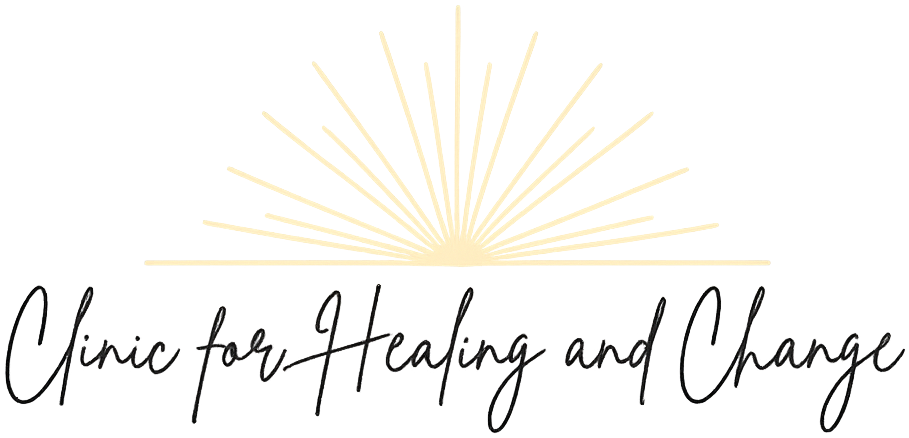It’s not too late to start couples therapy if you’re already considering a breakup. A lot of couples come to therapy when they feel they’re at an impasse or when fighting turns into considering a breakup. Couples therapy provides a forum to speak honestly, untangle issues, and determine whether you both desire to reconcile. Sometimes, couples discover new communication and conflict resolution skills. Some utilize therapy to separate in healthy ways. Beginning therapy this late demonstrates that both parties desire real resolution — either repair or an amicable separation. My main post discusses how therapy can help, typical results, and what to anticipate from the experiences.
Key Takeaways
- Couples therapy remains valuable and relevant even when partners are contemplating a breakup, as it can foster clarity, closure, and informed decision-making regardless of the relationship’s current state.
- Being successful in therapy doesn’t have to mean reconciliation. It covers better communication and growth and how to make healthier choices for your future relationships.
- Therapy provides a space to process unfinished feelings, work through paths to both repair and separation, and facilitate peaceful transitions.
- Deep-seated problems, intense feelings, and outside forces might come to the forefront in late-stage therapy, demanding that both partners confront each other with openness, truthfulness, and compassion.
- Personal healing is as important as couples therapy, because you’re bringing yourself to the joint sessions.
- Therapy can’t fix crushing unresolved abuse, or unrelenting indifference, or at odds relationship agendas, either, which is why it’s equally important to know when other support or individual work is needed.

The “Too Late” Myth
The belief that couples therapy is exclusively for relationships on firm footing is common yet misguided. Too many believe waiting until they’re broken beyond repair means there’s no help. Research from the US and abroad indicates that therapy can still deliver genuine benefits, even when a breakup appears inevitable. The idea that therapy is a last ditch effort or failure overlooks the various ways it can provide clarity, closure, or even a fresh beginning. No matter how late in the relationship, therapy can be a step toward understanding and healing.
Redefining Success
Thriving in therapy is about more than just staying together. Sometimes, it’s just about learning to speak up, listen and empathize with each other’s needs. For others, it’s realizing you are late—that you made a smart choice about the future, either to stay, change the dynamic between you, or move on. Growth for everyone involved, relearning how to set boundaries, or just arming yourself with new skills for your future relationships can be wins as well. Even if a couple splits, we’re learning how to make the next relationship healthier.
The Final Attempt
Therapy can be a final step before a major decision such as breaking up. A lot of couples enter therapy when they don’t have anything else left to lose. In such an environment they can open up without hesitation, exchange hurt or annoyance, and perhaps discover fresh compassion or empathy for one another. Some couples, after talking things through, discover their connection once again. For the rest, therapy offers an equitable and secure arena to discover if anything remains salvageable. That openness can shift the game, regardless of which way it goes.
Even if one party is dragging their feet, you can still make headway—albeit slowly.
Gaining Clarity
Therapy allows both parties to examine what they truly desire and require. It illuminates habits or patterns that keep sparking battles. Partners can discuss objectives or principles that were misplaced in routine. Armed with clarity about what works and what doesn’t, both parties are able to make intelligent decisions about what comes next.
Other times, the work done in therapy lays a rock-solid foundation for whatever comes next.
A Structured Goodbye
Other couples employ therapy to separate with goodness and politeness. Everyone has a voice. The sessions assist in organizing both emotions and forward thinking. Even a brief therapy session can enable both parties to emerge with less pain, more serenity.
The goal is a goodbye with dignity.
Healing Old Wounds
Therapy helps people confront old pains that still color how they connect today. Truthful conversations about old wounds can assist the two of you in recovery. Some therapists walk clients through grief, assisting them with release and resilience. This means allows both parties to proceed, in or out of the relationship.
Gauging Your Readiness
As we took the couples therapy example above, it’s all about you–when you’re ready, when your partner is ready, what you’re ready to achieve. Too often couples wait years before seeking help, but therapy isn’t just for last resorts. It’s best if you both sense that you’re ready to be honest and open, even if a breakup feels imminent.
Your Willingness
Getting ready for therapy is to confront some hard truths. Are you willing to discuss your emotions and hear tough feedback? You’ve got to be able to share real problems—things like trust, jealousy or feeling unheard. It pays to enter with the understanding therapy isn’t going to solve everything overnight. Let’s face it, those initial sessions can be awkward, even painful. If you’re willing to be emotional and take small risks you’ll receive more from the process.
To commit to therapy is to commit to realistic goals. For example, you could want to get better at solving fights or restoring trust after a lapse. It’s natural to feel vulnerable, or to be afraid. This vulnerability, while unpleasant, is how growth begins.
Your Partner’s Willingness
Discuss with your partner their desire for therapy. If they appear reluctant, seek to understand the reason. Others fear therapy signifies defeat or feel stigmatized by the concept of external assistance. Talking about these concerns collectively can help relieve stress. Therapy is far less likely to help if one partner won’t join, or won’t stay engaged. Mutual willingness isn’t simply optimal—it’s essential.
Making it safe for the two of you is essential. Stress to your partner that therapy isn’t just for couples who are in crisis. It’s a tool for enhancing every relationship — queer, poly, or otherwise.
Your Shared Goals
Write down what you each want from therapy. Perhaps one seeks improved communication, whereas the other senses a deficiency of trust. Sharing these needs helps synchronize your efforts. For instance, if one of you wants kids and the other doesn’t, that’s a massive point to bring up early.
Once you concur on what really matters, use those objectives to direct sessions. This might involve ironing out how you argue productively, or determining how to fight without damaging one another. Clear, shared aims keep therapy on focus.
Facing the Process
Therapy is going to produce difficult emotions. Prepare to discuss topics you both typically shun. Occasionally, sessions will feel rough or leave you uneasy. Growth is slow, but incremental steps count.
Therapy’s Dual Purpose
Couples therapy is not unidimensional. It is designed to serve two main purposes: helping couples rebuild and reconnect, or guiding them through a healthy separation. The therapy itself facilitates both directions by giving you a dedicated space to tackle problems, clarify needs, and navigate intense emotions. Therapy can provide communication tools and help you figure out what is possible for your relationship — starting over or letting go.
The Path to Reconciliation
Small steps count when trust seems shattered. Couples enter therapy believing certain injuries—infidelity or blowout distancing spanning years—equate to a clean break. Talented therapists assist partners identify behaviors that maintain them stalemate and instruct how to mend ancient wounds. This could include straightforward activities, such as expressing daily reflections or hearing non-judgmentally, to foster understanding. Over time, spouses begin to view one another with fresh eyes.
It shows you how to resolve fights that recur over and over. By learning to talk without blame, couples discover new ways to tackle what’s not working. Over time, even minor shifts—an honest conversation, a kind gesture—are milestones of change to celebrate.
The Path to Separation
Sometimes the healthiest thing to do is to separate. Therapy can assist couples to discuss breaking things off honorably. This includes discussing what separation will look like for both of your lives—where to live, how to navigate mutual friends or family, and how to discuss the breakup with others.
A good therapist won’t advocate for one result, but instead hone in on what both of you should do to get unstuck. They offer a venue to process intense emotions, and to figure out how to maintain respect for one another in the process. This may assuage both parties and make each of them feel more confident in their decision.
Therapy can assist in preparing for what follows. This could be discussing how to divide time with kids, or simply coping mechanisms for sadness or frustration as adjustments occur.
Clarity and Compassion in Decision-Making
Therapy gives you an opportunity to step back and look at things, away from the stress of your daily life. It makes it easier to, for each person, see what matters and provides a platform to discuss hopes or anxieties. Some couples rediscover reasons to remain, others find solace in parting ways.
A therapist can help partners view what can be, without lobbying for an answer.
What Late-Stage Therapy Involves
Late-stage couples therapy is not about early intervention. By the time a lot of couples come to us, they have years of conflict behind them. The stakes are higher, trust is fragile and emotions are heightened. Occasionally, personal mental health issues come to the forefront as individual tasks. The work can be slow going, and progress may span years. The focus might instead become to assisting both individuals operate better—together or apart.
Navigating Ambivalence
There’s always ambivalence when both partners think of calling it quits. Couples may be unsure of whether they want to stay or leave. Therapy helps understand these conflicting emotions. Unpacking the whys for staying—such as shared history or fear of change—and leaving—such as betrayal or unmet needs—provides clarity. It’s natural to desire these two things simultaneously, and therapy accommodates this contradiction. Solutions are constructed to handle procrastination, so couples can make moves instead of being immobilized.
Rebuilding Trust
Rebuilding faith is difficult, particularly if the history contains treachery or mysteries. Partners work with the therapist to name actions that hurt trust: lying, infidelity, or broken promises. They discuss what occurred, how it made the individual feel. Therapists might have you write letters or share timelines to make things explicit. The focus is on small, honest steps: sharing daily updates, being on time, or apologizing when needed. Both have to be open, or you’re stuck. It’s not immediate; it takes months or years in some cases, and both have to feel safe and heard for trust to blossom.
Managing High Emotions
Late-stage therapy is seldom serene. Arguments can ignite quickly. The other is to learn to catch yourself early and consciously choose your responses. Therapists do teach tools such as deep breathing or pausing before responding or requesting breaks. These steps keep talks on track. Emotional safety is crucial — partners have to feel that they can share without being criticized. If either of us feel attacked or shut down, it’s not going to get better.
Embracing Growth
Growth in late-stage therapy varies by couple. Sometimes, it means learning to argue respectfully. Other times, it’s about establishing boundaries, or even saying goodbye to the relationship nicely. It’s a slow process and requires actual work.

Beyond the Couple’s Bubble
Relationship issues don’t occur in a vacuum. The external pressures—family expectations, cultural norms, financial stress, even friends’ opinions—do have an influence on how people behave with one another. Couples therapy is by definition focused on the pair bond, but enduring change calls for peering beyond the ‘bubble’. Both partners need to confront external pressures, individual development and the larger scope of their lives apart from their relationship.
Individual Healing
Self-care is not selfish, it’s a basic step for anyone in therapy. We each carry our past, our habits, our hurt into the relationship. When one or both partners are struggling, it can bleed over into how they communicate, argue, or demonstrate affection for each other. Individual therapy, as well as couples counseling, assists individuals in determining what problems really belong to them, and that which belongs to both of them. This is particularly vital for those who have confronted trauma or continual mental health challenges. When two people work on becoming better versions of themselves, they frequently notice that the relationship becomes better as well.
Therapists frequently suggest individual healing as a means of disrupting unhelpful cycles. For instance, one who was raised in a house where arguing signified the death of love might be hypersensitive to conflict once out of the nest. By addressing these patterns individually, each partner can arrive more complete for the other.
External Pressures
Too many couples carry with them the burden of outside expectations, be it cultural, familial, or societal. As if there’s a ‘right’ way a relationship should appear– these concepts can interfere with open communication. If your families have one partner’s family expecting marriage/kids, while the other feels iffy, this could cause friction. Money troubles, work related stress, and friend pressures will stress out even the healthiest of couples. There are huge benefits to discussing these tensions and decision making as openly as possible and forming a plan together. When couples navigate these stressors together, they are less likely to come at each other’s throats.
Not all couples have that same support and some struggle to reach out. That said, having a strong network of understanding friends or family can help while in therapy.
Future Self
Therapy is not only about repair in the here and now, it invites both individuals to turn toward the future. What’s your vision for your life in five years? What sort of partner would you like to be? When couples and individuals articulate these goals, therapy can assist them in discovering how to achieve them. Even if the relationship doesn’t work out, both individuals can take what they learned into the next chapter of their lives. This is true regardless of the relationship style, be it traditional, queer, or polyamorous. Healing and growth don’t have to be confined to the type of commitment.
Therapists who honor both partners’ visions—without advocating for a particular outcome—help couples view therapy as not merely a last resort. It’s a room for education, transformation and at times, starting over.
When Therapy Might Not Work
Couples therapy can assist a lot of folks, but it isn’t always a panacea. Sometimes, therapy doesn’t work because of deeper issues, or because of not trying hard enough, or because of unsafe environments. As you navigate therapy, knowing when it might not help is key.
Unaddressed Abuse
If there’s abuse in a relationship, be it physical, emotional, or psychological—therapy for couples is often not the answer. Untreated abuse may make them unsafe – and even more damaging. An individual who is feeling menaced or frightened cannot be forthcoming in therapy, hence true advancement is nearly unattainable. Safety has to be the priority. Victims of abuse don’t just need couples counseling, they need professionals who specialize in trauma and abuse. Sometimes individual therapy is necessary prior to, or in lieu of, couples sessions. Not just to help the victim heal, but to establish a safe way forward.
Total Indifference
When one or both partners feel nothing—no care, no anger, just numbness—therapy may not get you very far. Apathy presents as laziness, disinterest in conversation, or disregard for mutual arrangements. One partner may shut down or keep responses brief, while the other presses for transformation. This gap can grow rapidly. If one person is only in therapy to appease the other, or if they just want the therapist to say it’s time to go, it’s not going to get very far. While therapy can sometimes help people find a spark again, if the indifference wins out over time, it’s hard to rebuild trust or warmth.
Conflicting Agendas
When partners want different things — for example, one wants to fix the relationship and the other wants out — therapy can get stuck. These muddled goals can cause talk in circles, with no real advancement. As an example, when one party has addiction but won’t seek help, or a mental health issue and doesn’t want to be treated, therapy is going to have a hard time being effective. Frank conversations about each other’s desires are necessary. Absent this, sessions can leave both partners feeling more adrift. If common ground is not found, therapy has little to build.
Other Barriers
Passive-aggressive gestures like the silent treatment or the sudden outburst obstruct the flow of candid conversations. If you’re closed off or conceal your feelings, therapy can’t progress. Occasionally, a therapist appears to take sides, exacerbating the situation. If a partner is pre-committed to breaking up, therapy already comes too late for them.
Conclusion
It still makes sense to start couples therapy even if you’re thinking about a breakup. Many couples wait until it feels rough or stuck to make the call. Others discover new methods of communication or view existing issues from a different perspective. Others leverage therapy to break up with less damage and more compassion. They both require heartfelt communication and sincere commitment. Even late in the game, therapy can still help you learn more about each other–or yourself. There are no magic cures, but those baby steps, those little victories, can mean a lot. With a good therapist, both parties can achieve greater peace, even if separation. Want to hear more or get tips that match your narrative? Read more posts or participate in the discussion on the blog.
Frequently Asked Questions
1. Is it too late to start couples therapy if we’re already considering a breakup?
No, it’s not. Couples therapy can help you clarify your feelings and communicate better and make happier decisions — even if that decision is to part ways.
2. Can late-stage couples therapy save a relationship?
Yeah, it can. Therapy could show you where you two agreed, help reestablish trust or guide you both to a healthy breakup if necessary. It’s about willingness on both partners’ parts.
3. What if only one partner wants to try therapy?
Therapy can still do a lot of help. One session or several combined in one approach can open new views although only one of the partners is totally convinced initially.
4. How long does couples therapy usually take?
Each couple is unique. For some couples, a few sessions can help, but most couples need several months. Your therapist can help you establish realistic expectations given your circumstances.
5. What should we expect in late-stage couples therapy?
Anticipate candid discussions, hands-on activities, and an emphasis on transparent dialogue. The therapist helps both partners clarify what they want and guides the next steps — whether together or apart.
6. Can therapy help us separate peacefully?
Yes. Therapists regularly assist couples in breaking up with grace, emphasizing positive ways to communicate and look toward a healthy future, individually and collectively.
7. When might couples therapy not work?
Therapy won’t do much good if one or both of you are unwilling to be honest and open, or if there is abuse occurring. In situations like that, safety and personal resources are front and center.
Take the First Step Toward Reconnecting With Each Other
You don’t have to wait for a breaking point to begin couples therapy. If you’re feeling distant, stuck in the same conflicts, or simply out of sync with your partner, that’s reason enough to reach out. At our Sacramento clinic, we specialize in couples therapy that meets both of you exactly where you are—with compassion, expertise, and deep respect for your relationship.
Whether you’re navigating major life transitions, working through communication breakdowns, healing from betrayal, or simply hoping to strengthen your emotional connection, we’re here to help. Our therapists draw from proven, evidence-based approaches like the Gottman Method and Emotionally Focused Therapy (EFT) to help you build trust, improve communication, and create lasting change together.
Therapy is a collaborative space—not about blame, but about growth. We tailor each session to your shared goals and challenges, offering a safe, supportive environment where both partners feel heard and understood.
If you’re ready to feel closer, stronger, and more connected in your relationship, we invite you to reach out. Schedule a free consultation today and take the first step toward healing—together—right here in Sacramento.
Disclaimer
The content on this website is provided for informational and educational purposes only and is not intended as a substitute for professional mental health or medical advice, diagnosis, or treatment. Always seek the guidance of a licensed therapist, physician, or qualified healthcare provider with any questions you may have regarding a mental health condition or treatment options. Do not disregard professional advice or delay seeking care based on information found on this site.
Viewing this website or communicating with Clinic for Healing and Change through this site does not establish a therapist-client relationship. A therapeutic relationship is only formed after a formal intake process, mutual agreement, and completion of required documentation.
This website is not monitored for crisis or emergency situations. If you are experiencing a mental health emergency, please call 911 or go to your nearest emergency room.
This site may include links to external websites or third-party resources. These are provided for your convenience only; Clinic for Healing and Change does not endorse and is not responsible for the content, accuracy, or availability of these external resources.
While we strive to keep the information on this site current and accurate, it may not reflect the most recent clinical developments. Clinic for Healing and Change disclaims all liability for actions taken or not taken based on any content on this site, to the fullest extent permitted by law.







